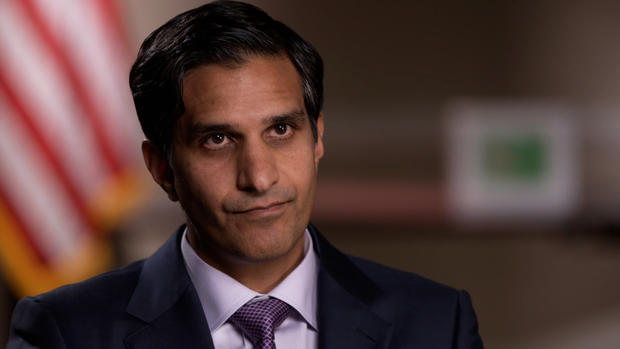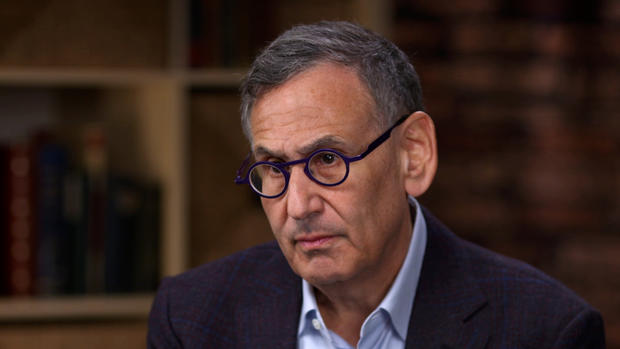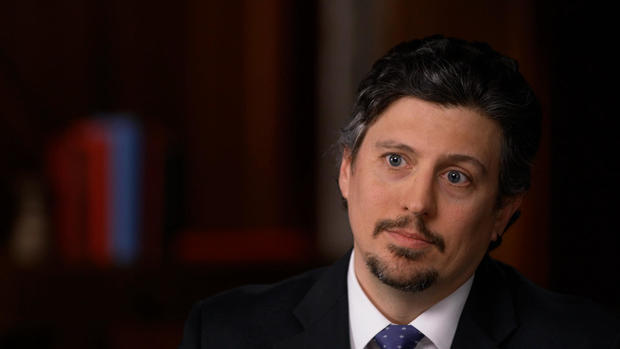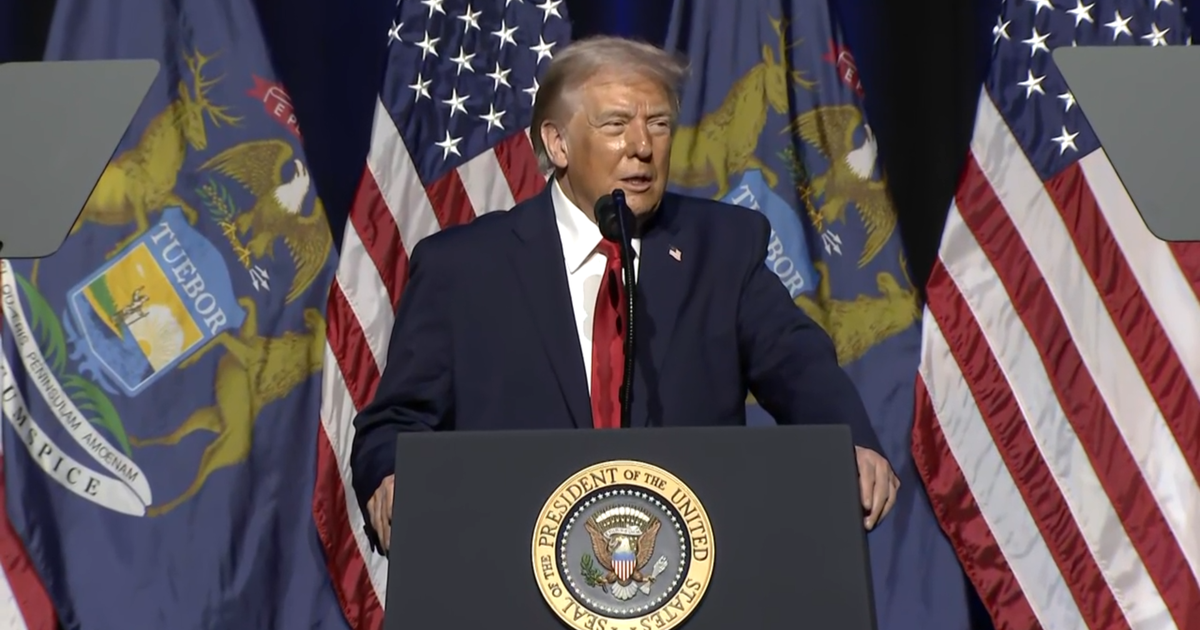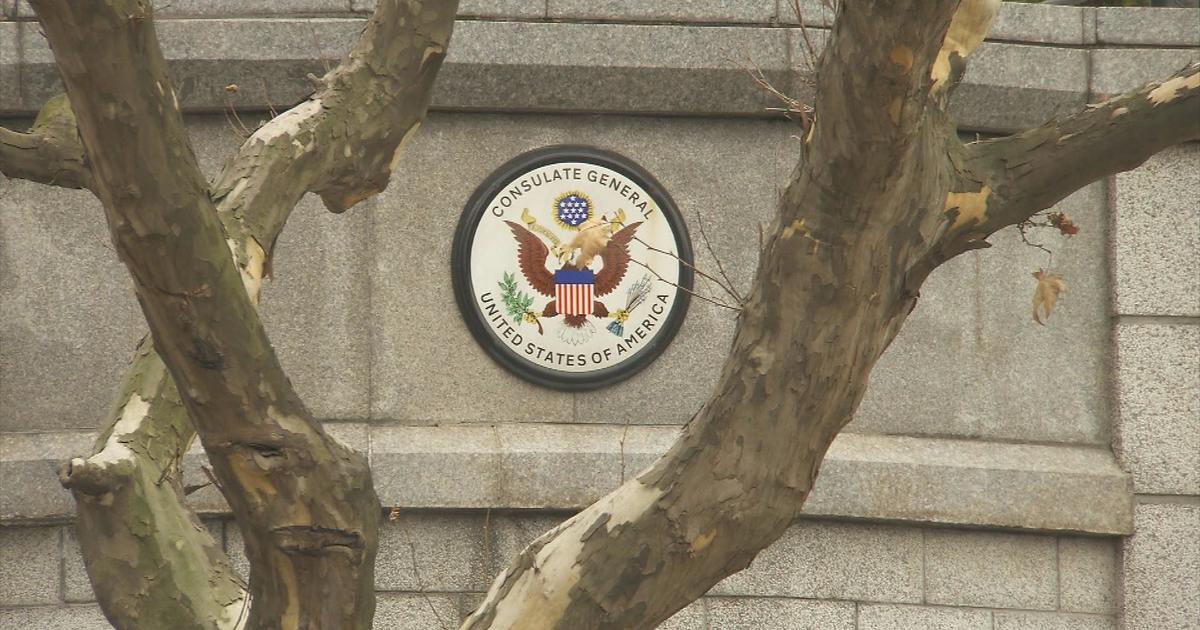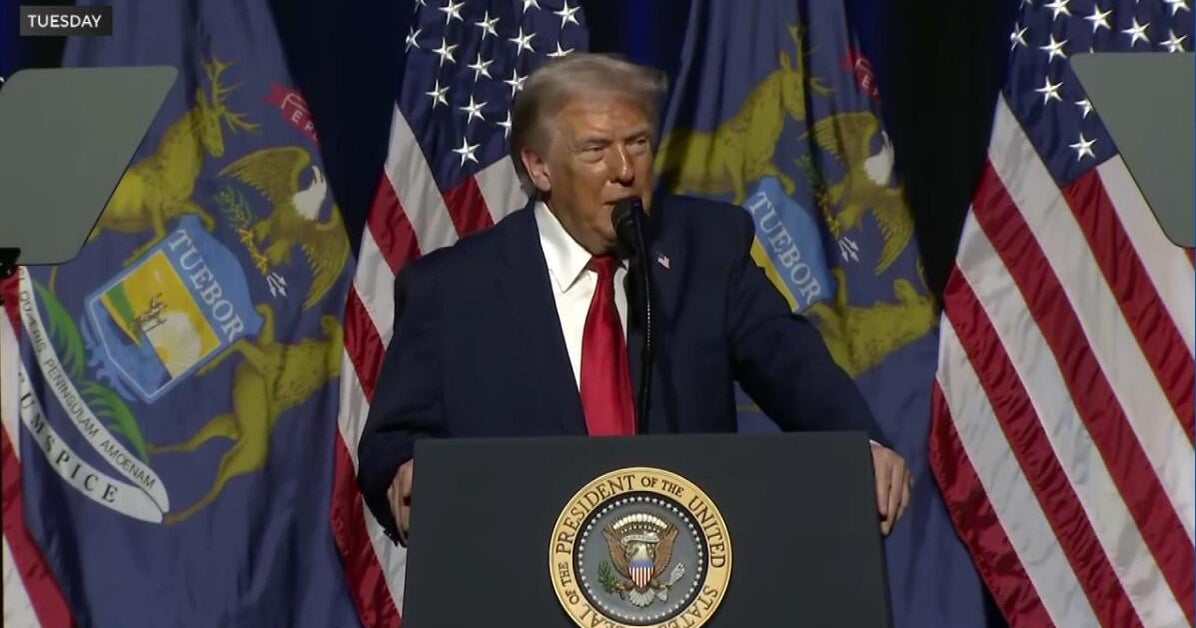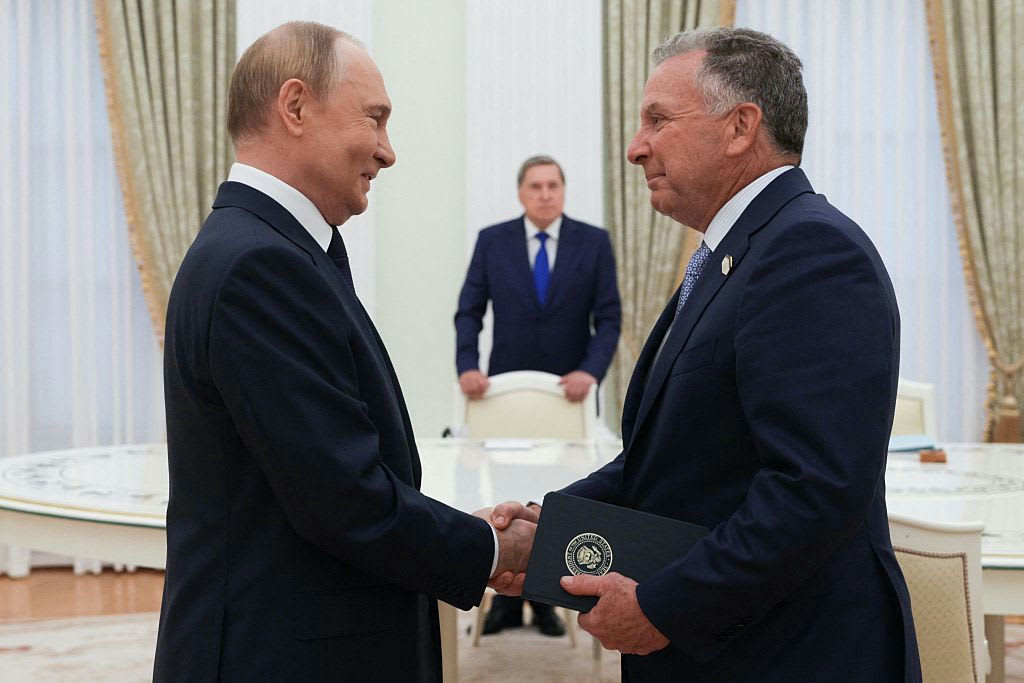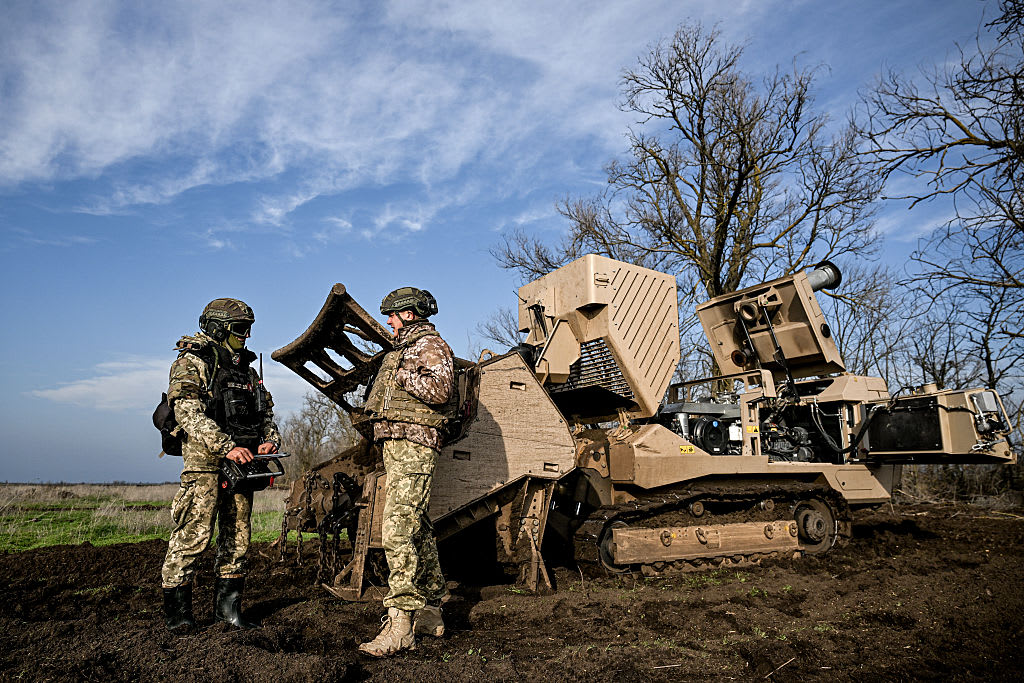Economic shock and awe: The strategy behind the economic sanctions against Russia
In Ukraine today, President Volodymyr Zelenskyy accused Russia of war crimes over its continued bombardment of the port city of Mariupol, after reports of a military strike on an art school sheltering hundreds of civilians.
Zelenskyy renewed his call for direct peace talks with Vladimir Putin as the West attempts to aid Ukraine not with boots on the ground, or air cover, but with economic sanctions.
Think of it as an economic shock and awe campaign. Never before has such a large, modern economy been cut off so quickly from most of the world.
To better understand the Biden administration's strategy, we spoke with veterans of financial warfare against Iran and North Korea and the White House official who designed the current plan to batter nearly every facet of Russia's economy.
On the first day of the war in Ukraine, it wasn't a general who briefed reporters at the White House. It was Daleep Singh.
Singh at February 24 briefing: Good to see all of you again, but this is a briefing I never wanted to give.
Singh is the deputy national security adviser for international economics, credited with designing the sanctions that Putin, himself, described as "economic blitzkrieg."
We met Daleep Singh last week, steps from the White House where the administration was watching the impact of its assault on the Russian economy play out in real time.
Sharyn Alfonsi: What are the types of things that you can look at and say, "You know what? The sanctions are working"?
Daleep Singh: you hear top Russian officials describing the pain they're under. the indications about how we're impacting Putin's calculus are really evident when-- you-- you look at the ways in which they're trying to harden their defenses.
Sharyn Alfonsi: What do you mean?
Daleep Singh: Well, they're-- they're taking some desperate measures. Capital controls, for example, preventing people within Russia from taking foreign currency out.
Sharyn Alfonsi: How do you read that?
Daleep Singh: I think it's a desperate move. He's self-isolating his economy. Russia is now on the fast track to a 1980s-style Soviet living standard. It's looking into an economic abyss, and that is the result of Putin's choices and I can see from his reaction that's where it's headed.
This is the second time that Daleep Singh has engaged in financial combat against the Kremlin. Singh was working at the Treasury Department in 2014 when Russia annexed Crimea. He helped create the sanctions that followed.
That 2014 experience helped Singh, who has a degree in economics from Duke and masters degrees in public administration and business from Harvard and MIT, create a sanction doctrine – a playbook on how to better wage financial war on Putin.
So this time, as troops massed on the Ukraine border, Singh presented his plans to President Biden. A sanctions package so severe they hoped it would bring Putin and the Russian economy to its knees.
Sharyn Alfonsi: Putin's called the sanctions akin to a declaration of war. Is it?
Daleep Singh: You know, we need to stay sober-- with our rhetoric. This is a moment for American resolve. There's nothing more important right now. I mean, this is about the freedom of 44 million innocent people who are being terrorized by a dictator. And no one in Ukraine wants him there.
Within 72 hours of the invasion, the U.S. and its allies kicked most Russian financial institutions out of SWIFT - the backbone of the global bank payments system.
Then, they froze the foreign bank accounts of dozens of Russian billionaires and began seizing their toys, such as a $700 million yacht with its own indoor swimming pool.
But the most dramatic strike was directed at the Central Bank of Russia.
The U.S. and its allies cut the Central Bank off from $300 billion it had stashed in American, European and Asian banks so the Russian government could pay its bills if it ever faced sanctions again.
Sharyn Alfonsi: You knew-- that there were gonna be specific economic sanctions as you approached-- this invasion. Why not signal the specifics? Could that have been a deterrent?
Daleep Singh: We signaled as clearly as we could that these were gonna be the most severe economic sanctions ever levied on Russia, and that we would take steps that we had not contemplated in 2014.
Sharyn Alfonsi: Do you think that Putin didn't believe you or didn't care?
Daleep Singh: he probably thought he played chess better than we do. We've disarmed his central bank. And that's why his economy's in free-fall. I don't think he planned for that.
Sharyn Alfonsi: Were you surprised how quickly the allies came onboard?
Daleep Singh: It's unlike anything we've seen in the sanctions context. And, you know, maybe at the risk of-- there's a certain irony of quoting Lenin, but decades are happening in days. You know, Switzerland broke centuries of neutrality to join these sanctions.
Almost immediately the rouble turned to rubble, losing a third of its value, the Moscow Stock Exchange shuttered. Russians lined up at ATMs and cleaned out stores. Credit agencies warned that Russia is likely to default on its foreign loans – something that hasn't happened since 1918 during the Bolshevik Revolution.
Daleep Singh: The best projections I see out there right now are suggesting that Russia's economy is gonna be half of its size that it was before this invasion. And we take no pride in the suffering of the Russian people. This is Putin's war. These are Putin's sanctions. And this is Putin's hardship he's putting on the Russian people.
That pressure mounts everyday. Over the last few days, Australia added 11 banks to its sanctions list. Japan put another 15 Russian officials in its crosshairs. According to the Brookings Institution, more than 30 countries have leveled a total of 2,500 sanctions on Russian targets, including Vladimir Putin himself.
Sharyn Alfonsi: There's never been sanctions like this before. Is there any concern that Vladimir Putin is now in a corner and can't get out? That there's nowhere else to go for him?
Daleep Singh: Look, diplomacy is never dead. There are always ways for us to step back from the brink. But dictators have to pay a price for their aggression. We've always had two different tracks of effort: deterrence and imposing costs, as well as diplomacy. That's still our strategy.
One official directly involved told us there was a back and forth between Americans and financial technocrats inside Russia, but that line of communication mysteriously went silent two days after the war started.
Daleep Singh: Look, we can't get into Putin's mind. He's-- he's a brutal tyrant. All we can control, all we can ensure is that this will be a strategic failure for Putin. It's ultimately--
Sharyn Alfonsi: And what does a strategic failure look like today?
Daleep Singh: It means his ability to project power and exert influence are fundamentally downgraded. Power is not the exercise of brute force--
Sharyn Alfonsi: Of land grabs?
Daleep Singh: --to acquire land. That's not what it's all about. In this century, our view is power is much more closely tied to your economic strength, your technological sophistication, and your story. Can you attract ideas and talent and good will?
Sharyn Alfonsi: What targets are left?
Daleep Singh: We can broaden our sanctions. So-- take the measures, take the sanctions we've already applied, apply them in more targets. Apply them to more sectors.
Sharyn Alfonsi: More banks?
Daleep Singh: More banks, more sectors that we haven't touched.
Sharyn Alfonsi: Like what?
Daleep Singh: Well, the commanding heights of the Russian economy. It's-- it's mostly about oil and gas, but there are other sectors too. I don't wanna specify them, but I think Putin would know what those are.
Daleep Singh's plan got added firepower he didn't expect when private companies started fleeing Russia. Coca-Cola, which sold Coke in every nation except North Korea and Cuba, suspended operations in Russia.
McDonald's closed 850 restaurants.
Boeing and Airbus have cut off the spare parts Russian airlines need to keep flying across a nation spanning 11 time zones.
In three weeks time, 400 companies have left or closed their doors.
Sharyn Alfonsi: Is doing business in Russia worth the aggravation?
Dave Schaeffer: At this point, the answer is no.
David Schaeffer is the CEO of Cogent Communications, it provides high speed internet service in 170 countries, including Russia.
At this network operation center in Washington, employees monitor the flow of internet traffic around the world.
Cogent has terminated its service to carriers linked to the Russian government.
Dave Schaeffer: We were concerned that the size of the connections that we provide to those companies could be used offensively.
Sharyn Alfonsi: To launch a cyber-attack.
Dave Schaeffer: That's correct. That was our number one motivation.
Sharyn Alfonsi: Was there specific intelligence that you were seeing, or traffic that you were seeing that concerned you?
Dave Schaeffer: So we are routinely attacked. And we had, in normal times, been attacked by state actors and by the GRU. And we're particularly concerned that we were seeing unusual activity and the possibility of a much greater cyber-attack.
The GRU is the intelligence wing of the Russian military. It specializes in computer attacks. Schaeffer told us his decision to cut service in Russia would cost the company less than 1% of their revenue, about $10 million dollars, so it wasn't worth the risk.
Dave Schaeffer: We do not at this time have any physical equipment inside of Russia that can be taken over. We do have equipment as far east as Kharkov in the Ukraine. That equipment has been taken offline. That territory has been invaded by the Russians, and we had to equip our equipment with effectively a dead man switch. So once we lost connectivity to it, we had to disable the equipment in such a way that if the Russians took it, it would do them no good.
On Friday, in a case of audacious nation-state spin, the Central Bank of Russia referred to the exodus of companies and the cratering economy as "a large scale structural transformation."
Days earlier, during a televised address Vladimir Putin admitted his country's economy had taken a hit from the barrage of sanctions and warned "it won't be easy" for Russians, who should expect a rise in prices and unemployment.
Richard Nephew: The idea is to put so much pressure on him that he has to make a change to his policy.
Sharyn Alfonsi: But could all that pressure backfire?
Richard Nephew: Absolutely.
Richard Nephew knows about dictators feeling cornered. Nephew worked on the Iran sanctions during the Obama administration and left the State Department last month. He told us sanctioning an autocrat such as Putin comes with risk.
Richard Nephew: A couple weeks ago, they were talking about alerting their strategic nuclear forces. They've already talked about how this is economic warfare and that they will retain the ability to respond accordingly. And if you think about that, right now they're in the midst of actual warfare. If their perception is that they're under attack from other countries, that-- that's a pretty scary thought.
Sharyn Alfonsi: It's a delicate walk.
Richard Nephew: It's one where you don't actually have a guidebook. There's no-- you know, set of rules that tell you, "Implement sanctions this far, but not that far. And take this step, not that step."
Sharyn Alfonsi: For Russia, what are the potential workarounds?
Richard Nephew: Well, sanctions evasion is a long-practiced activity. There are ways in which they can work with other countries, potentially those are subject to sanctions themselves, Venezuela, Iran. They could potentially also try and increase their relationship with China. And countries at one point have to make a decision, are they really interested in helping out the Russians, or are they more interested in helping out themselves?"
U.S. officials said Russia asked China for financial support. On Friday, President Biden spoke with China's President Xi Jinping for two hours.
Daleep Singh: We've been very clear with China about any support for this invasion and any help it may provide Russia in evading sanctions. And we've also made it clear what those consequences would be.
Sharyn Alfonsi: What would the consequences be? Sanctions--
Daleep Singh: That's-- that's gonna remain private.
Sharyn Alfonsi: What is the first thing that Vladimir Putin needs to do so that you might lift sanctions?
Daleep Singh: Well, we're nowhere near that point. The first thing he has to do is to stop-- a reckless and barbaric attack on the civilians of Ukraine. That's not happening.
Secretary of State Antony Blinken told National Public Radio that ending Russia's economic isolation would require Putin to stop his war and agree not to attack Ukraine again.
Daleep Singh: We're not cowboys and cowgirls pressing buttons to destroy an economy. You know, we've spent hundreds of years in this country shaping military doctrine. We've spent a small fraction of that time shaping the doctrine of economic statecraft, but we have one. It's our objective to demonstrate resolve, that sanctions should have the power to impose overwhelming costs on your target.
Sharyn Alfonsi: There are people who think the sanctions are only about regime change, that that's the ultimate goal.
Daleep Singh: That's up to the people of Russia. Our-- our cause, our purpose, is to make sure that Putin's actions are remembered as a strategic failure. That's what's within our control, full stop.
Produced by Guy Campanile. Associate producer, Clare Hymes. Broadcast associate, Elizabeth Germino. Edited by Peter M. Berman.

